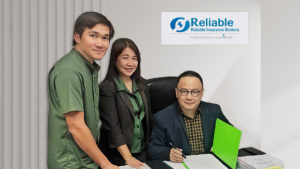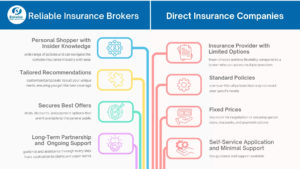Insurance scams are more common in the Philippines than many realize. Fake agents and misleading offers are out there, waiting to take advantage of buyers who are unsure, unfamiliar with the process, or simply trying to do the right thing. And too often, people only realize they’ve been scammed when it’s already too late—when they try to make a claim and discover they were never covered to begin with.
No one should be left unprotected because of fraud. Here are the most common scams, the red flags to watch out for, and how you can protect yourself and your hard-earned investment.
Common Insurance Scams in the Philippines
Insurance scams come in many forms—and they happen more often than most people realize. From fake policies to dishonest agents, these scams can leave you without protection when you need it most.
Here are some of the most common insurance scams in the Philippines that every consumer should watch out for.
Unauthorized or Fake Sellers
Some scammers pretend to be licensed insurance agents, offering fake or non-existent policies. Most victims only find out they’ve been scammed when they try to make a claim and are told their policy isn’t valid.
A common example involves fake health insurance packages sold in public areas like malls or terminals. Scammers offer “instant” coverage for checkups and hospital bills. They even provide printed ID cards and receipts. But when victims try to use the benefits, they discover the clinics have no record of them.
Ghost Brokers
Ghost brokers are scammers who act like legit insurance agents. You’ll often find them online—especially on Facebook Marketplace, group chats, or through referrals. They attract buyers by offering “promo” insurance deals at very low prices.
Once they receive your payment, they disappear. The policies they give are either fake or were never processed by any real insurance company. Victims usually find out the truth when they file a claim and learn there’s no record of their coverage.
These scams continue to spread online, with posts using phrases like “budget insurance” or “limited offer—message now” to hook unsuspecting buyers.specting buyers using phrases like “discounted today only” or “budget insurance, message now.”
Fake CTPL Insurance for Vehicles
CTPL (Compulsory Third Party Liability) insurance is required by law when registering a vehicle in the Philippines. Scammers take advantage of this by selling fake CTPL certificates—especially outside LTO offices.
In 2023, the Insurance Commission warned the public after several cases were reported. Victims were issued CTPL documents that couldn’t be verified by any licensed provider.
Even worse, some only found out their CTPL was fake after getting into an accident—when they realized they had no real coverage.
Fraudulent Practices by Sales Agents
Not all insurance scams come from outsiders. Even agents working for licensed companies can commit fraud. Some have charged credit cards without permission, made misleading sales pitches, or sold insurance products that don’t match the client’s needs.
In 2019, the Insurance Commission ordered Caritas Health Shield to stop new sales. This followed complaints about agents swiping cards without approval and giving false information about policies.
A common issue today is the hard selling of VUL (Variable Universal Life) plans. Many people think they’re getting basic life insurance—only to find out later that their money was tied to investments they didn’t fully understand.
Red Flags to Watch Out For
Scams are designed to look convincing, but there are always warning signs. Here are common red flags that can help you spot a fake insurance offer or a dishonest seller:
- No official documentation: If the agent can’t provide a valid license number, business permit, or official policy documents, that’s a huge warning sign. Real insurance providers always issue formal documents with clear terms and contact details.
- Too-good-to-be-true prices: Watch out for deals that are significantly cheaper than market rates—especially for CTPL, life, health, or car insurance. Scammers often use “limited promo” or “one-day-only” pricing to pressure buyers into quick decisions.
- Pressure to pay immediately: If you're being asked to pay on the spot without time to review the policy or verify the agent’s credentials, walk away. Licensed brokers encourage informed decisions, not rushed ones.
- Transactions via personal accounts: Be cautious if payments are requested through personal bank accounts, GCash numbers, or e-wallets with no business name. Reputable providers use registered business accounts for accountability.
- No physical office or contact details: If the agent has no office address, company email, or traceable contact number—and only communicates through Facebook or messaging apps—that’s a strong indicator of fraud.
- Poor or inconsistent communication: Vague answers, missing details about the policy, or reluctance to provide written information are all red flags. A real insurance provider or broker should explain everything clearly and answer your questions confidently.
How to Protect Yourself
Avoiding insurance scams starts with being informed and cautious. Here’s how you can protect yourself from fake policies and dishonest sellers:
- Always verify the agent or company: Ask for the agent’s license number or ID and check if they’re registered with the Insurance Commission. You can also verify insurance companies and products through their official website: insurance.gov.ph
- Be cautious of deals that are “too cheap”: If the price is way lower than what other providers offer, it’s a red flag. Scammers often use "promo" rates to rush people into buying fake coverage.
- Review the policy documents carefully: Make sure the paperwork includes the name of the insurance company, policy number, coverage period, and clear terms and conditions. If anything looks vague or incomplete, don’t sign or pay yet.
- Don’t pay through personal accounts: Only send payments to official business accounts or verified company channels. Avoid transferring money to GCash numbers or bank accounts under a personal name.
- Work with trusted, licensed brokers: They guarantee you get real coverage from accredited providers and guide you through policy questions, claims, and renewals.
Why Working with Us Matters
We don’t just sell you a policy—we help you choose the right one for your needs, your goals, and your budget. At Reliable Insurance Brokers, we represent you, not just one insurance company. That means you get honest, personalized advice and real options that fit your situation.
When you work with us, you can be sure your insurance comes from an accredited provider, with full transparency on coverage, terms, and costs. No hidden surprises. No fine print confusion. Just real protection when you need it most.
If you ever have questions, need to make a claim, or want to adjust your policy, you’re not alone. You have a real team ready to guide and support you—not a nameless call center, and definitely not a disappearing agent.
We're here to make sure you’re never left unprotected or misled. Contact us today to learn more about how we can assist you in safeguarding what matters most.
Contact Information for Inquiries and Support
If you have any questions or need assistance with your insurance, feel free to reach out to us:
- Call: +63 2 8631 9285 to 86
- Mobile: +63 917 138 5120
- Email: info@reliable-insurance.ph
- Messenger: m.me/reliable.insurancebrokersph
Sources:
- Carmudi Philippines. (n.d.). Car insurance scams in the Philippines: What you need to know. Carmudi.
- Insurance Asia. (2021, September 28). Philippines cracks down on unauthorised third-party insurance sellers. Insurance Asia News.
- Insurance Business Asia. (2016, September 14). US$21.2m lost to auto insurance fraud in the Philippines each year. Insurance Business.
- Insurance Business Asia. (2019, September 16). Insurer ordered to stop sales following fraud accusations. Insurance Business.
- Insurance Commission. (n.d.). Illegally Operating Companies.










